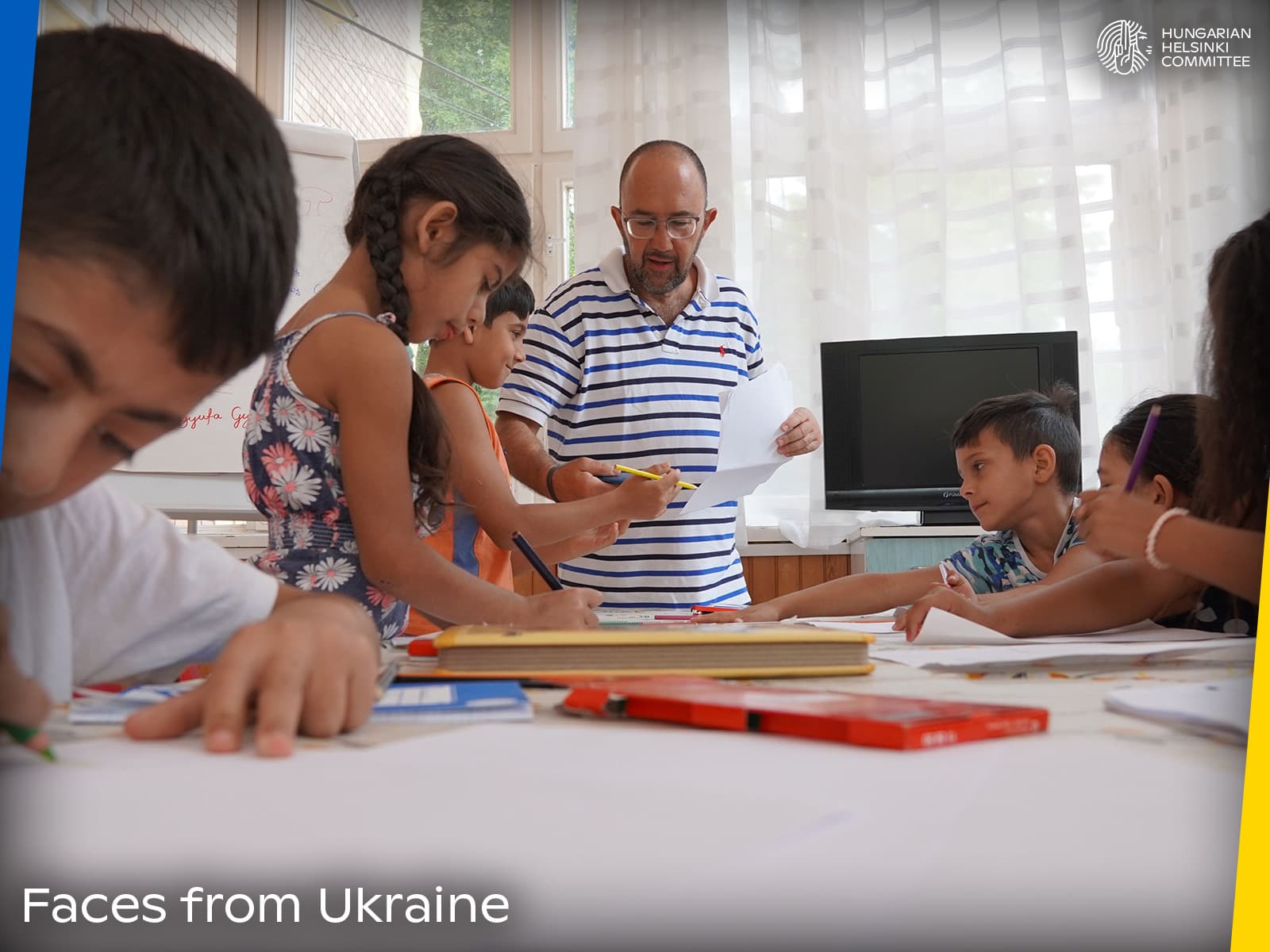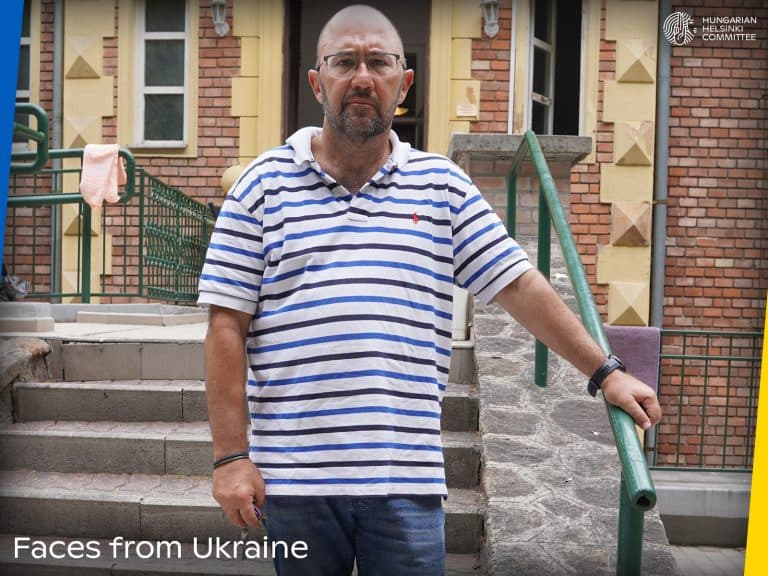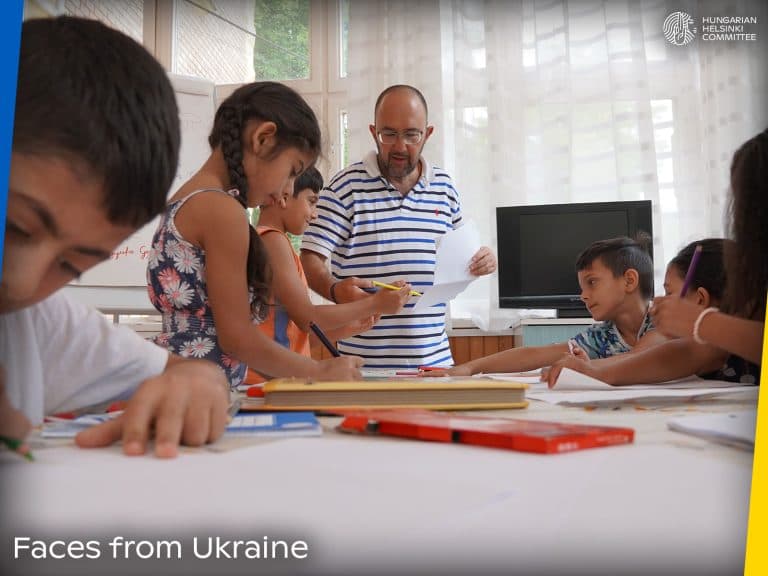
Faces from Ukraine: Tamás, the helper
“We do our utmost not to let the children drop out from education.”
Translation is available for this content
Váltás magyarraAs a social worker, he gained his first experience in asylum during the 2015 crisis. First, he helped at the Szeged railway station, then, as the staff member of the UN and then Menedék – Hungarian Association for Migrants, later he worked in Greece, and also at the Serbian-Hungarian border after that. Now, since February, Tamás and his coworkers help families from Zakarpattia Oblast, in the refugee shelter created in the Municipality of Budapest’s nursing home on Zugligeti Road. Since Putin’s conquering war doesn’t appear to end so far, Tamás and his colleagues are planning for long term, so they enrolled the mainly Roma refugee children in the neighbourhood schools.

“The war in our neighbourhood has given entirely new tasks to the colleagues here, as we had dealt with the patients of the nursing home before. Within a few days of the war’s outbreak, the Municipality of Budapest established a venue with a capacity of 47. We launched the refugee shelter under the direction of Zsuzsa Kissné Máté. We do our utmost not to let the children drop out from education – so we also set up a school within the institution.”
tells Tamás about the beginnings, while he is practicing the alphabet with the children.
“We started work from the basics. For example, we had to assess vaccination levels, then we vaccinated everyone against COVID. In the meantime, we had to register people at immigration office, but for this, we had to also take people there. Those who arrived here had to apply for protection immediately if they wanted to stay. For employment, we had to arrange tax numbers and social security numbers. At the beginning, sometimes we left in the morning with the refugees and only arrived back in the evening. But we prepared for this as well, we packed sandwiches for the lengthy administration, and we even took paper and coloured pencils for the children to keep them busy while waiting.”
he recounts the first months’ tasks.
They solved many situations, but sometimes they encountered obstacles. On these occasions assistance from the Hungarian Helsinki Committee came handy. They needed legal consultation and representation.

“This job is sometimes hard. People – understandably – often arrive with incomplete documents from Ukraine, and many adults can’t even read and write. Though the immigration office should translate Ukrainian documents, they often failed to do this. One reason behind this could be that initially, they were under heavy pressure – but Roma origin of some refugees could also have been a factor.”
tells the social worker.
While the children are writing lower- and uppercase letters, Tamás assists them with patience. Meanwhile, he is telling:
“Many people ask us how long the refugees would stay here. There are many types of answers, and the uncertainty’s huge. Many say that they would like to return to Ukraine, to their homeland. Others would rather stay. However, who knows how long the war will last? Some people have already tried to return, but they regret it now. Many of those who decided to stay work in the kitchen, or take odd jobs. For them, work could mean being able to leave the shelter, so that they could move on to rent their own place later on.”